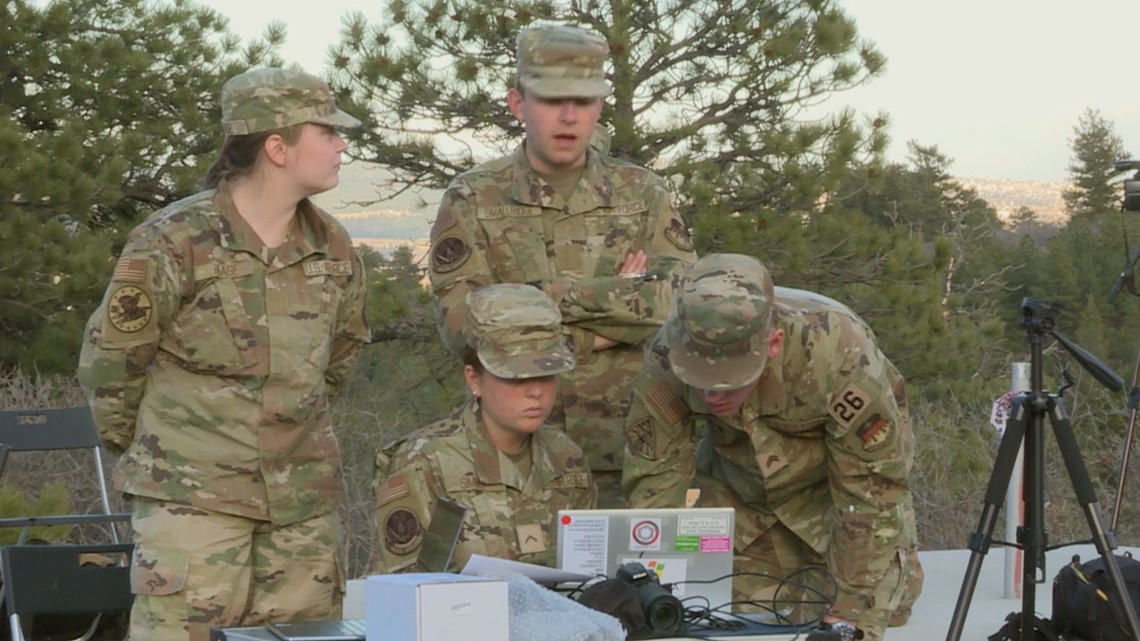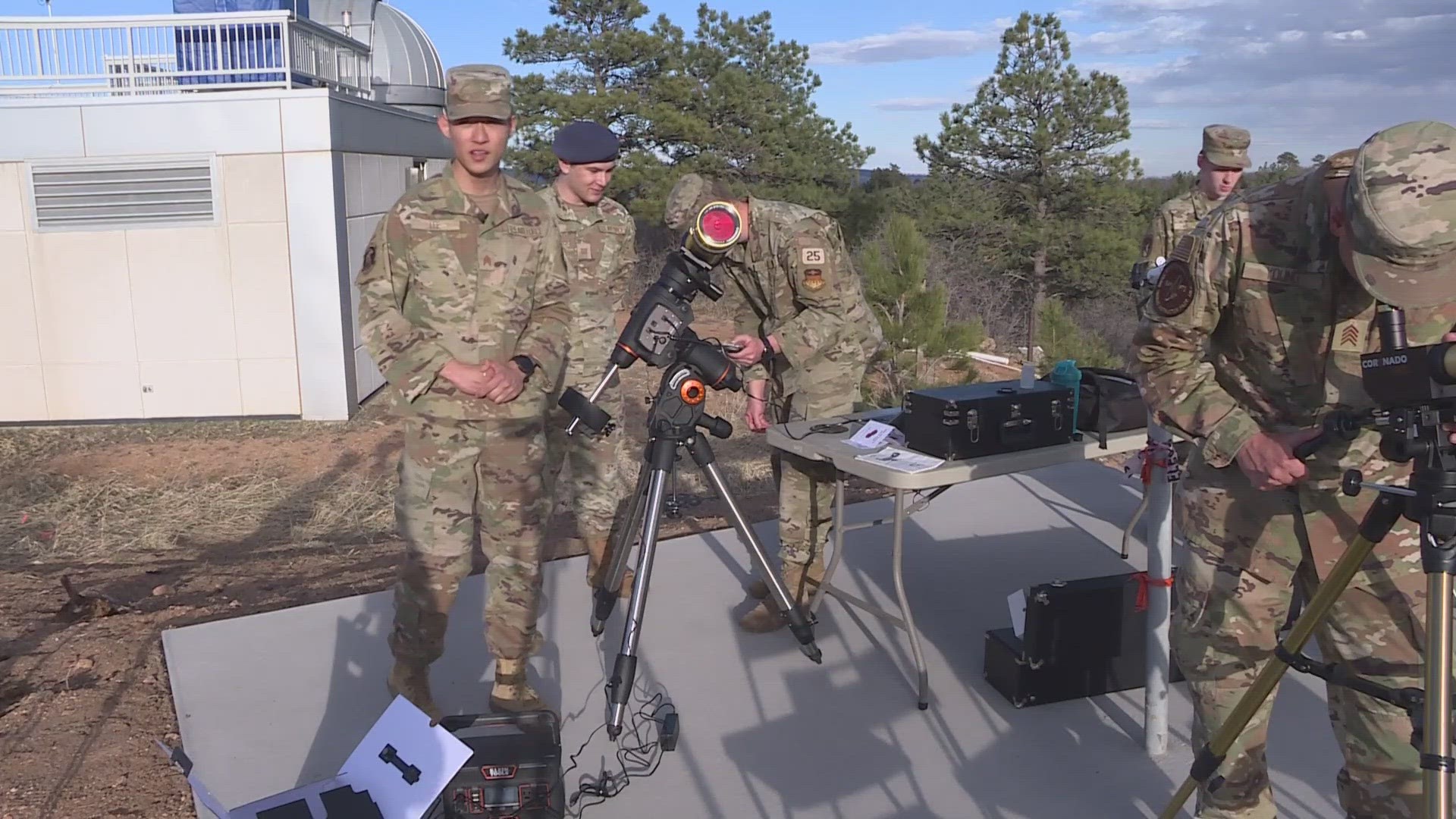COLORADO SPRINGS, Colo. — A group of U.S. Air Force Academy cadets are going on a road trip this weekend, to help contribute to important research.
Two groups are chasing the path of totality, and a chance to see the solar eclipse at its most unique moment.
“NASA put out a call for anyone willing to collect, with DLSR cameras and another with a specialized polarization camera,” explained Lt. Colonel Benjamin Roth, the director of the Astronomical Research and Observatory at the Academy, as well as the officer in charge of the Physics and Astronomy Club taking the trip.
The cadets will capture images of the sun’s outer layers during the eclipse, supporting NASA’s Citizen Continental America Telescope Eclipse next-generation experiment and the Eclipse Mega Movie Project.
“We’re going to feed that data over to NASA, and because it's NASA, it will be public for anybody to see,” Roth said. “I don’t think people understand how little we understand our sun. During a total eclipse, it is a rare opportunity to study part of the sun we don’t see any other time.”
Cadets have spent months helping plan for this trip. Most are going to Fredericksburg, Texas where there will be a large festival supporting eclipse research and celebrations. A smaller group of cadets will travel to McCleansboro, Illinois.


“I’m very excited,” said Cadet Tom Young. “I’ve been anticipating this eclipse since the last one came through America, and until this event was organized I thought I was going to miss it.”
Cadet Grant Ferry graduates from the academy this spring and then plans to continue his studies at the Air Force Institute of Technology.
“I’ll be getting a master's in applied physics,” he said. Ferry’s family traveled to Wyoming for a chance to see the path of totality in a 2017 eclipse. He’s excited to see another one.
“I think it’s thrilling," he said. “I’ve been interested in space, physics, astronomy for years. To finally be able to have the technology background and opportunity to collect data ourselves, feels like we’re making a big impact.”
Roth knows this is a rare opportunity to see something special and be part of the scientific community gathering data used for generations to follow.
“The type of camera we’re using for measurements we’ve only had that tech in the past five years,” he said grinning. “It’s an awesome opportunity. We may discover things we never knew before, that’s why we’re doing this.”
SUGGESTED VIDEOS: Latest from 9NEWS

